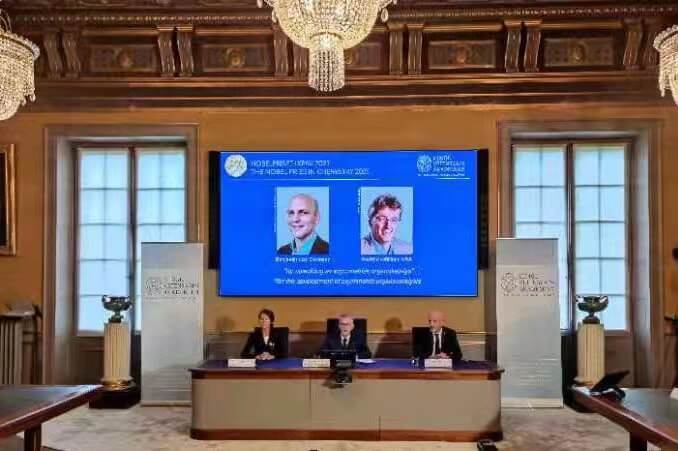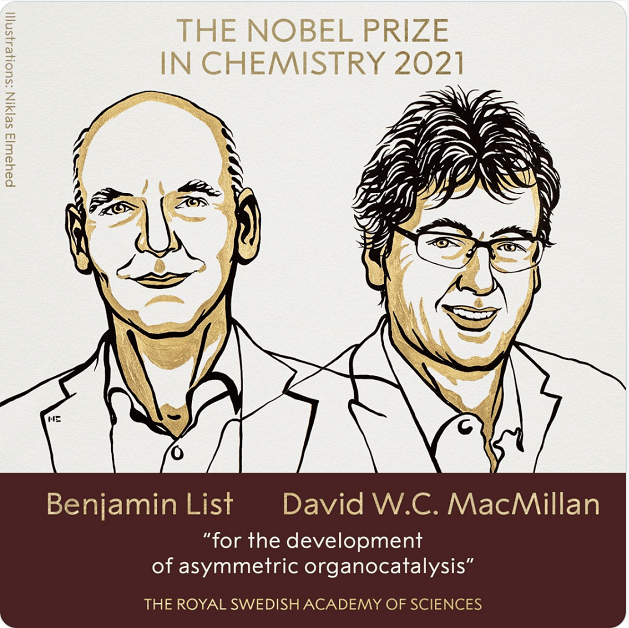2021 Nobel Prize in Chemistry: Asymmetric Organic Catalysis, shared by German and American scientists
On October 6, German scientist Benjamin List and American scientist David MacMillan won the 2021 Nobel Prize in Chemistry, “in recognition of their asymmetry Contributions made by the development of organic catalysis”.
- Benjamin Liszt, born in Frankfurt, Germany in 1968, is currently the director of the Max Planck Institute for Coal Research in Germany.
- David Macmillan, born in Bellshill, England in 1968, is now a professor at Princeton University in the United States.
The prize money of the Nobel Prize comes from the interest or investment income of the fund established by the Nobel Prize. As the income of the Nobel Fund changes, the bonus of the Nobel Prize fluctuates. In 2021, the individual bonus will be 10 million Swedish kronor, or about 1.13 million US dollar.
Winner of the Nobel Prize in Chemistry for the past five years
The 2020 Nobel Prize in Chemistry was awarded to Emmanuelle Charpentier and Jennifer A. Doudna for their contributions to “relying on the development of genome editing methods.”
The 2019 Nobel Prize in Chemistry was awarded to John B. Goodenough, M. Stanley Whittingham and Akira Yoshino for their contributions in the field of lithium-ion batteries .
The 2018 Nobel Prize in Chemistry was awarded to American scientist Frances H. Arnold, American scientist George P. Smith and British scientist Gregory P. Winter in recognition of their work Contributions in the fields of “directed evolution of enzymes” and “phage display technology of peptides and antibodies”.
The 2017 Nobel Prize in Chemistry was awarded to Jacques Dubochet, Joachim Frank and Richard Henderson for their development of cryo-electron microscopes technology.
In 2016, the Nobel Prize in Chemistry was awarded to French scientist Jean-Pierre Sauvage, American scientist J. Fraser Stoddart, and Dutch scientist Bernard L. Feringa. The reason for the award was “the design and synthesis of molecular machines.”
2021 Nobel Prize in Chemistry: Asymmetric Organic Catalysis


